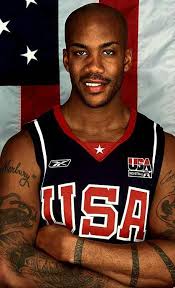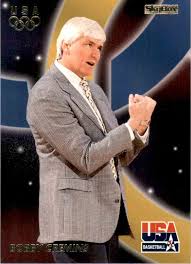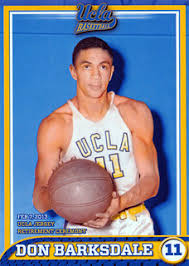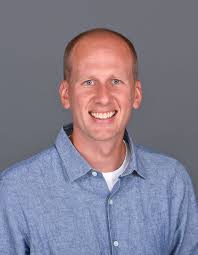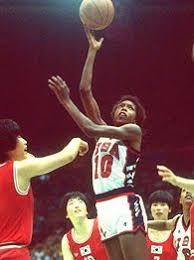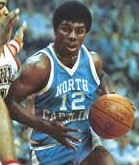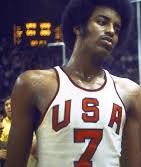The NBA Finals date back to 1947 (when they were known as the Basketball Association of America Finals) and the very 1st NCAA tourney was held in 1939. Olympic basketball competition is even older: it debuted as a demonstration event in 1904 and the men’s version became a medal sport in 1936, with the women finally getting their chance to go for the gold in 1976. The United States has dominated Olympic basketball competition from the start: the men have won 15 gold medals in the 18 tournaments they have participated in during the past 84 years, while the women have won 8 gold medals in the 10 tournaments in which they have competed during the past 44 years. Those of you who were looking forward to the 2020 Olympics opening ceremonies in Tokyo on July 24, 2020 will have to wait an extra 364 days, as the coronavirus caused a postponement until July 23, 2021. Due to the absence of college basketball since mid-March, HoopsHD’s Jon Teitel decided to fill the void by trying to interview as many prior Olympic players/coaches as possible so that you have something to read this summer while not watching the Summer Games. We continue our coverage by chatting with Bobby Cremins, 1996 Olympic assistant coach, about his former Georgia Tech player Stephon Marbury winning a bronze medal in 2004.
In 1995 Stephon was named a McDonald’s All-American along with future NBA All-Stars Chauncey Billups/Vince Carter/Antawn Jamison/Kevin Garnett/Paul Pierce: where does that 1995 high school senior class rank among the best that you have ever seen? It definitely does ran high: he was at Lincoln High School.
He was born/raised in Brooklyn: how did you convince him to attend Georgia Tech, and how difficult was it? It was a crazy recruiting story. He loved Kenny Anderson, which we had going for us, and Travis Best was a senior so it was a perfect opening for him. I almost gave up because Syracuse and some other schools were involved. I knew his coach Bobby Hartstein through the Howard Garfinkel basketball camps. Bobby told me that we were high on his list because Stephon loved Kenny. I went to his school around September or October and saw that he was a scoring machine. There was a period where I thought that we lost him and Bobby called me to ask what was going on because he still wanted to come to Georgia Tech, so we eventually got back in there. He was a great kid who gave me no problems and always went to class. I lacked some foresight because I thought that he would stay more than 1 year.
In 1996 he was named 1st-team All-ACC and ACC ROY: how was he able to come in and dominate right from the start? He was in the Kenny Anderson category but they were different players. Kenny was a better passer but Stephon had better range/power. The 1 thing they had in common is that they were both terrific scorers. Some freshmen try to do too much but Stephon was such a great scorer who just had to learn how to get other people involved. He was a tough kid and very athletic.
In the summer of 1996 he was drafted 4th overall by Milwaukee and then traded shortly thereafter to Minnesota for the draft rights to Ray Allen and a future 1st-round pick: what did it mean to him to get drafted, and what did it mean to him to get traded? Back then I stayed out of the NBA stuff once the kid left campus because I wanted him to start his own life. I never attended the draft because it was their time to realize their dream. Kevin Garnett was already on Minnesota and they had some familiarity so Stephon was excited to play with him. When he turned pro it was quite a show. He had a press conference that I attended in Brooklyn with his whole family: it started 90 minutes late because he would not start until his mother showed up. He had a brother who played at Georgia and he wanted to help his big family. He felt like God had given him this basketball ability to help his family get out of the projects: he felt like he was the chosen one.
He averaged 15.8 PPG/7.8 APG in his 1st season and was named to the 1997 NBA All-Rookie 1st-Team: how was he able to make such a smooth transition to the NBA after only 1 year of college? He was 1 of the most talented kids you ever saw. He was the chosen 1: that is for sure. All of a sudden he started jumping around from team to team. 1 year he came down to South Carolina where the Knicks were training: he met up with my team manager and bought us a beautiful new TV for our locker room. He was a good kid but there was a lot of pressure on him due to high expectations. I really wanted to talk to him when he was on the Knicks but he was hard to get a hold of. I was worried when he went to China but it turned out to be a good move for him.
In the 2001 All-Star Game he scored 12 PTS including 2 threes in the final minute to clinch a 1-PT win by the East: how was he able to play his best against the best? I would put his talent up against anyone: he just needed to learn how to play the game. He could take over any game and was very confident. He was not a pure PG because he wanted to score and was so powerful that he could put 50 on you.
In Game 1 of the 2003 Western Conference 1st round with Phoenix he scored 26 PTS in 53 minutes including the game-winning 3 at the buzzer in a 1-PT OT win at San Antonio: what made him such a great clutch player? There was nothing that he could not do physically: I just tried to teach him the game and he bought in. Sometimes it is hard to coach a talented guy because he thinks he knows everything.
He won a bronze medal with team USA at the 2004 Olympics: what did it mean to him to represent his country, and what did it mean to him to win a bronze medal? I am sure that he was very disappointed with the bronze medal because he did not like losing.
He spent 12 years in the NBA before moving to China and becoming a 6-time All-Star yet his 7.6 career APG remains top-20 in NBA history: what made him such a great PG? That was the part that we were working on: a PG has to get assists so that is great to hear. I think that he was best when he was happy. He had the talent so if the other intangibles were there then he would perform very well. You needed to earn his trust and I was glad to see him do so well in China. I was a little nervous about why he went to China but it turned out pretty well for him.
In 2001 he donated $250,000 to help victims of the September 11th attacks, in 2005 he donated more than $500,000 to help victims of Hurricane Katrina, and in March he announced a plan to deliver 10 million N95 masks from China to the USA for hospital workers and other first responders: what impact do you think his off-court generosity will have on his legacy? A lot. I was really proud about him trying to get the masks because he absolutely loves New York. His philanthropy is really wonderful. The biggest thing I tried to teach him was peripheral vision so that he would see the whole court…but at the same time he was talented enough to score. I coached him for 4 months when we were on the quarter system and he was gone after 2 quarters: I did not see that coming but he did the right thing. It was not real common back then to leave after 1 year but taking care of his family was his #1 priority because he loved them. 1 time I went to see him and I got lost in the projects: I had a little kid ask me if I was looking for Marbury…and it turned out to be his cousin Sebastian Telfair! We had a great New York City connection that started with Mark Price and we eventually became known as “Point Guard University”. I wish I could run into him more because I am very proud of him.

